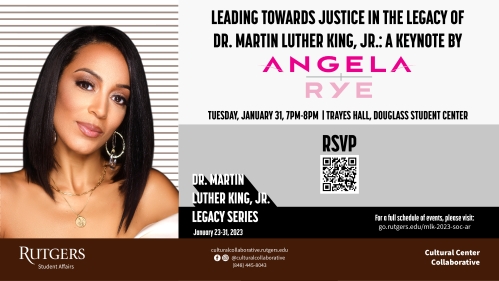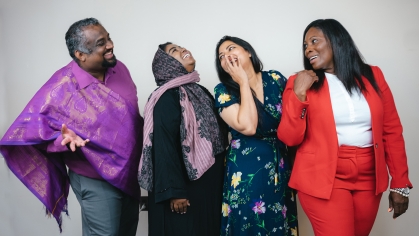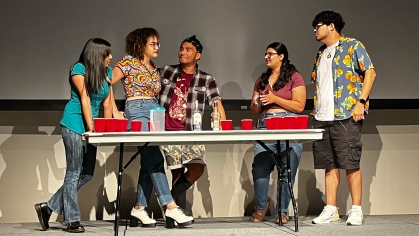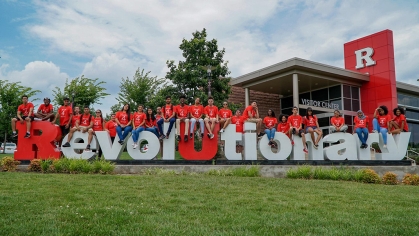Dr. Martin Luther King, Jr. Legacy Series Promotes Social Justice at Rutgers University—New Brunswick

Students at Rutgers University—New Brunswick participate in all kinds of activism—they attend rallies and protests, run for positions in Rutgers University Student Assembly, and start political organizations to make their voices heard on-campus.
For the rest of January, the Cultural Center Collaborative in the Division of Student Affairs will be providing a program on social justice and activism that students can tap into: its annual Dr. Martin Luther King, Jr. Legacy Series. The program will feature guest speakers, social justice activities, and point towards opportunities for student activism.
“There is a long, lasting legacy of advocacy and inclusion work at Rutgers, from Paul Robeson, to student activism in the 1960s that created the first openly gay organization in New Jersey, to the creation of our Cultural Center Collaborative,” said Darnell Thompson, assistant director of education for the Center for Social Justice Education and LGBT Communities. “Programs like these are opportunities to highlight and showcase the phenomenal work that has happened and that continues to happen at Rutgers.”
Carlos Fernandez, director of the Center for Latino Arts and Culture, concurred.
“In the past, with this event, we’ve had historians, artists, writers, activists, educators, and more,” he said. “As graduating students complete their academic journeys and new ones start theirs, we need to remind our students about where we’ve been and connect their struggles to the struggles of previous generations.”
The Cultural Center Collaborative has put together three main events this year: a talk and moderated Q & A from Walter Herres, a New Brunswick advocate for the houseless, a community-building activity for the student leadership councils of Student Affairs’ Cultural Centers, and a keynote address by Angela Rye, a civil rights advocate in political and legislative strategy.
The presence and active participation of students at these events will play a crucial role in making them successful, as students will be able to connect and engage with local activists in New Brunswick, learn tangible leadership skills, and be inspired to advocate for change.
“I hope that our students will walk away from this feeling empowered, with the knowledge and the tools to do what they feel needs to be done,” said Joshanna Holyfield, senior program coordinator at the Paul Robeson Cultural Center. “I’m hoping that they walk away and say, ‘I want to make change, and I’m not going to wait for someone else to do it.’”
Furthermore, the Cultural Center staff also hope that these events will inspire all members of the Rutgers community—faculty, staff, and students alike—to engage in activism and attend Cultural Center events as Black History Month, Women’s History Month, GAYpril, and APIDA Heritage Month approach.
“The dialogue, conversations, and activism will not stop at the end of our series on January 31,” said Holyfield. “We’re hoping that students and the community will continue the conversations and keep engaging with the cultural collaborative on their journey towards justice.”
The Dr. Martin Luther King, Jr. Legacy Series will take place from January 23 – 31 and is open to the entire Rutgers University—New Brunswick community. Click here to learn more about the Cultural Center Collaborative at Rutgers University—New Brunswick.



